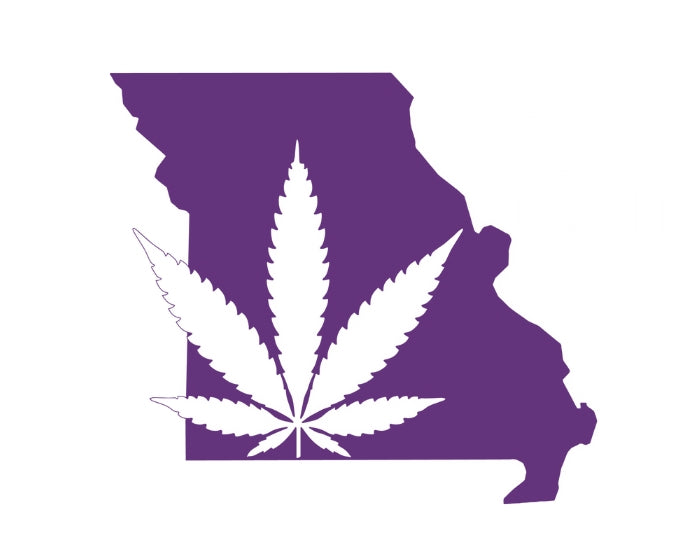As the U.S. Drug Enforcement Agency considers moving marijuana from Schedule I to Schedule III, marketplace experts weigh in on the possible ramifications within the health and wellness sector.

The future for cannabis in America continues to ascend. Last week, voters in Ohio approved a ballot initiative legalizing adult-use marijuana. Likewise, earlier this year, Minnesota lawmakers also passed a bill making it legal for individuals over 21 to possess, consume, and cultivate cannabis.
With the addition of Minnesota and Ohio to the ranks of states with legal and regulated recreational marijuana markets, a majority of Americans now live in states where adult-use cannabis is legal. And with more and more states considering ballot measures or legalization reform legislation, that number will only continue to grow.
Yet, despite all of the progress made, marijuana is still listed as a Schedule I narcotic on the federal government's Controlled Substances List. Even though just about every researcher and medical professional worth their salt will say that cannabis is nowhere near as dangerous as heroin or meth, also Schedule I drugs, marijuana remains illegal at the federal level in the United States.
However, a seismic and potentially transformative change could be on the horizon for proponents of ending the federal ban on marijuana. In August, the Department of Health and Human Services recommended that cannabis be moved from Schedule I to Schedule III under the Controlled Substances Act (CSA). It was a historic move by the agency because it signified for the first time that the department no longer views marijuana as a narcotic with high abuse potential and no medical value.
The announcement came as a result of an extensive scientific review of cannabis requested by President Biden last year as part of his decision to grant pardons to all individuals currently serving federal prison sentences for simple marijuana possession convictions. In that request, Biden directed the Secretary of Health and Human Services and the Attorney General to "expeditiously" review marijuana scheduling under federal law.
While the recommendation is not binding, with the U.S. Drug Enforcement Agency (DEA) having the final word, the overwhelming scientific data combined with growing political momentum for marijuana reform could significantly impact the DEA's final decision.
If DEA officials do decide to take the HHS’ recommendation and reschedule cannabis, the reclassification could significantly influence whether and how physicians recommend marijuana to their patients. Furthermore, the change could also radically alter how insurance companies view potentially paying for cannabis treatments.
Currently, doctors run the risk of losing their licenses if they attempt to prescribe drugs or treatments not approved by the U.S. Food and Drug Administration (FDA), which is why physicians do not prescribe state-regulated medical cannabis. And, even if the DEA does reschedule marijuana, it will still be illegal for doctors to prescribe medical marijuana to patients.
However, they would continue to be allowed to recommend state-regulated, non-FDA-approved marijuana products to individuals seeking medical marijuana cards, which enables them to register as cannabis patients with the state.
By moving cannabis to Schedule III, the DEA would enable doctors to prescribe FDA-approved cannabis medicines because physicians are allowed to prescribe Schedule III items so long as the FDA approves them.
"Assuming that there are new, FDA-approved cannabis drugs, a licensed physician with proper DEA registration to prescribe controlled substances would be able to prescribe that drug," said attorney Eric Berlin, who heads the U.S. and global cannabis practice at international law firm Dentons.
"Assuming that there are new, FDA-approved cannabis drugs, a licensed physician with proper DEA registration to prescribe controlled substances would be able to prescribe that drug."
- Eric Berlin, U.S. and Global Cannabis Practice at international law firm Dentons
Currently, there is only one marijuana plant-based drug that doctors prescribe. Epidiolex, which the DEA removed from the controlled substances list in 2020, is used to treat seizures in certain types of patients. However, rescheduling marijuana would also allow for more extensive research and cannabis drug development, which could ultimately lead to more FDA-approved cannabis products available for prescription.
Moving cannabis to Schedule III may also initiate changes in the types of products and treatments covered by insurance companies. If the DEA makes the recommended change, FDA-approved marijuana products, like Epidiolex, will become eligible for insurance coverage.
"Insurance will cover FDA-approved drugs, but it will not cover non-FDA-approved drugs," Berline added.
"Insurance will cover FDA-approved drugs, but it will not cover non-FDA-approved drugs."
- Eric Berlin, U.S. and Global Cannabis Practice at international law firm Dentons
While the short-term gains from rescheduling cannabis may not be that significant, it is essential to note that rescheduling is just the first step toward the ultimate goal of full federal legalization. Many industry advocates and stakeholders view the HHS recommendation as just the next logical step in the process.
As more and more research is gathered demonstrating the overwhelming health and wellness benefits of cannabis, more states will legalize it, and the pressure to end the paradoxical federal ban will only increase. The rescheduling discussion is vital to the overall progression of cannabis from an illegal narcotic to legal and regulated plant medicine. However, it is simply a brief stop on the way to the final destination of legal weed from sea to shining sea.






































